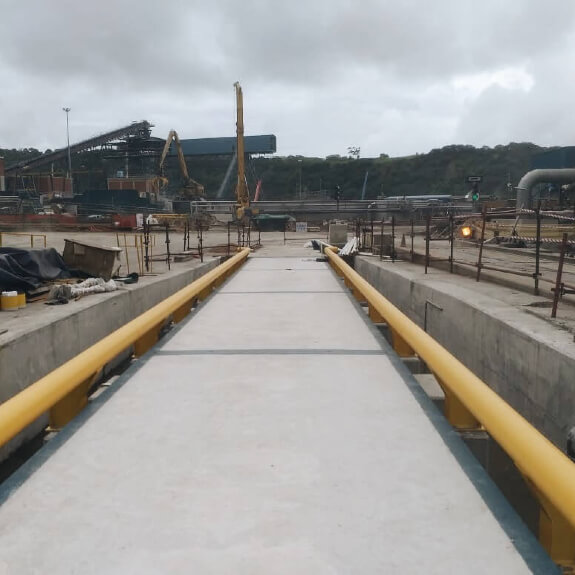
The essential task of accurately weighing large vehicles and their loads in various commercial and industrial settings is handled by a crucial tool: the weighbridge.
As central as they are to these operations, it is worth understanding that weighbridges come in diverse types, each designed to suit a specific range of applications, load requirements, and environmental conditions. This article explores the different types of weighbridges commonly used in the industry.
Pitless or Above Ground Weighbridges
The pitless or above ground weighbridge is one of the most commonly used types. Designed to be installed above the ground, these weighbridges are ideal for places where excavation work is either challenging or costly. The level of the platform is kept above ground level, making it easier for vehicles to ascend and descend with the help of approach ramps.
While they are relatively easy to install, pitless weighbridges require more space due to the approach ramps on either side. The advantage, however, lies in their ease of maintenance and ability to withstand heavy loads. Their elevated positioning also makes them less vulnerable to waterlogging during rainy seasons.
Pit Type Weighbridges
Contrasting to the pitless model, we have the pit type weighbridge. In this design, the weighbridge is installed in a pit so that the platform is flush with the ground. The most significant advantage of this type is its space-efficiency, as it doesn’t require additional room for ramps. It is an ideal choice for sites with space restrictions.
However, installing a pit type weighbridge may involve more civil work and can be more expensive as a result. Due to their positioning, they are also more susceptible to waterlogging and require regular maintenance to avoid scale damage due to moisture or debris.
Portable Weighbridges
For operations that require flexibility and mobility, the portable weighbridge is the perfect solution. As the name implies, these weighbridges can be moved from one site to another with relative ease. They are usually modular in design, which facilitates quick assembly and disassembly.
Portable weighbridges are highly beneficial for temporary sites or locations where the need for a weighbridge is project-based. They offer the same level of accuracy as their fixed counterparts, thus ensuring that even on-the-move operations can maintain high standards of load management.
Multi-Deck Weighbridges
When a single measurement isn’t sufficient, a multi-deck weighbridge comes into play. This type of weighbridge features multiple platforms that allow for the separate weighing of different vehicle axles or sections. This design is particularly useful in scenarios where axle load compliance is crucial.
While a multi-deck weighbridge may involve a higher investment compared to other types, its ability to provide a more comprehensive view of vehicle weight distribution can result in significant long-term benefits. From enhanced safety to compliance with stringent regulations, the advantages are multi-faceted.
In summary, the type of weighbridge best suited to a business depends on various factors such as the available space, type of vehicles to be weighed, budget, and specific operational requirements. Whether it’s a pitless, pit-type, portable, or multi-deck weighbridge, each offers unique benefits designed to meet the diverse needs of industrial and commercial weighing.


